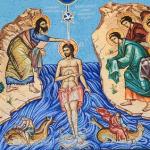When I was a little girl, I was in a school play about Saint Catherine of Sienna. I played her mother, Mona Lapa Benincasa, because I’m unattractive and have always looked old for my age, but I liked the part better than the lead because it was comedic. I even sang a solo. Saint Catherine has been one of my favorite saints ever since. Mona Lapa Benincasa, if you recall, was very keen on making Catherine attractive to men. Catherine didn’t want this; she wanted to devote herself to the Lord. So she cut off her beautiful wavy hair, and Mona Lapa had a fit. That was my favorite scene to rehearse. She made Catherine serve as the family’s maid for quite some time until her father put his foot down and allowed Catherine to pursue her vocation. If David Upham had been alive and writing in those days, maybe he would’ve told Catherine that her holy desire was the same as a pornography addiction, but I like to think Catherine wouldn’t have believed him. She didn’t seem very gullible. Mona Lapa would have enjoyed listening to Upham, however. Only one of these people went on to be a miracle-worker and a Doctor of the Church.
I have not published in the field of dating and marriage, nor do I intend to except now and then on this blog, so at one level I suppose I should probably bow myself to Upham’s expertise. However, when I see someone spouting what seems to go against the whole grain of Catholicism, I have to say something whether he’s an expert or not.
There is nothing sinful about placing the Lord before men. There is nothing comparable to pornography in striving to become a saint.
The Lord demands you put everything– men, money, worldly esteem, favorable reviews in Crisis magazine, video games, whether or not you have a beard– on the back burner and serve Him first of all. Obviously, one of the main ways we serve the Lord is by serving others, and that looks different for different vocations. If you’re a nun who teaches elementary school or an unmarried person who is a nurse in the oncology ward, this will look a certain way; if you’re a spouse and homemaker, it will look another. You might well end up deciding to shave or give up playing video games for the sake of harmony with your spouse, and that might be an act of virtue for you in your own life. I certainly hope you turn your back on pornography.
If you feel called by God to get married and have children– praise the Lord. That’s a beautiful vocation. It’s my vocation, in point of fact. I am writing this blog post in between providing dialogue for my daughter’s action figure game and reading Olivia to her; when I finish I’m going to clean up her lunch dishes. I met my husband in a summer session graduate phenomenology class. We still joke that Husserl’s Logical Investigations is “our book” the way other couples call a song on the radio “our song.” The professor never forgave me for getting married instead of becoming an academic, not that you can’t be both. Many women are. But I am very blessed in my marriage and suspect I’d never have been much of an academic. I don’t even like Husserl all that much.
What I railed against in my previous post, is the idea that a woman’s call to marriage could ever come before her call to serve God– that she was somehow primarily a spouse or potential spouse, rather than primarily a person loved by Christ with all His Heart. We are, men and women, first of all persons. We are first of all willed into existence by a God who wills us because He loves us. We are first of all destined to follow Him on the path to Calvary and become great saints. No man or woman was ever born on this earth whom God didn’t wish to become a great saint. This is an obligation for every one of us.
On that path to sanctity, quite a few of us are going to be called to marriage. Marriage is a glorious vocation; it is a vocation to become the living image of the Holy Trinity, pouring oneself into another and receiving from another in the way the Father pours out His love into the Son and receives eternal love from the Son. It is a vocation to a union so awesome that we often become mothers and fathers– our love makes people, not in the same way God does but in a sacred sign that points to Him. Not even the angels can make people. We may be called to make sacrifices of all kinds in order to better love our spouses and our children. We will, in some sense, certainly be called to lay down our lives and take them up again. Not one of us is going to live that vocation perfectly– I certainly haven’t. I fail in charity every day. But we must give ourselves over to the mercy of God and try to live it again and again, because that is our path to sanctity.
But if a marriage is primarily about pleasing a spouse– not about living that Perfect Charity that comes from God but about making your husband feel pleased with you– that marriage is not a godly thing. If your quest to become a wife and mother becomes more about changing yourself to be pleasing to men instead of letting God make you into the saint He had in mind, any marriage that results will not be of God. It will be an idol. Your first goal must be God. God will direct you to find Him hidden in the people you’re called to serve– if you’re married, primarily but not exclusively in your husband and children. But if you think your husband and children ARE God, your marriage will be a disaster.
That is the truth about Holy Matrimony, as far as I understand it. If that truth offends Professor Upham– if it seems to him the same as pornography and growing a beard– then I’m even less keen to read his book.
(image via Pixabay)
07/21/2018 update: David Upham happened upon this post and asked me to tell my readers that he agrees with my concluding paragraphs. Consider yourselves informed.













